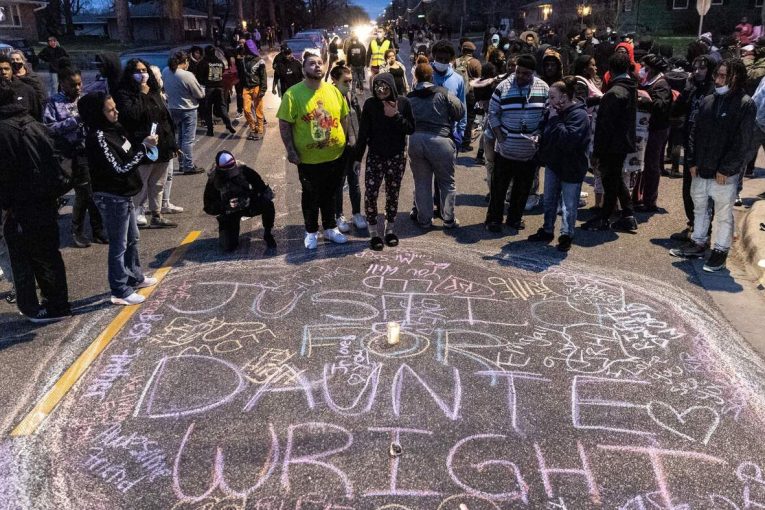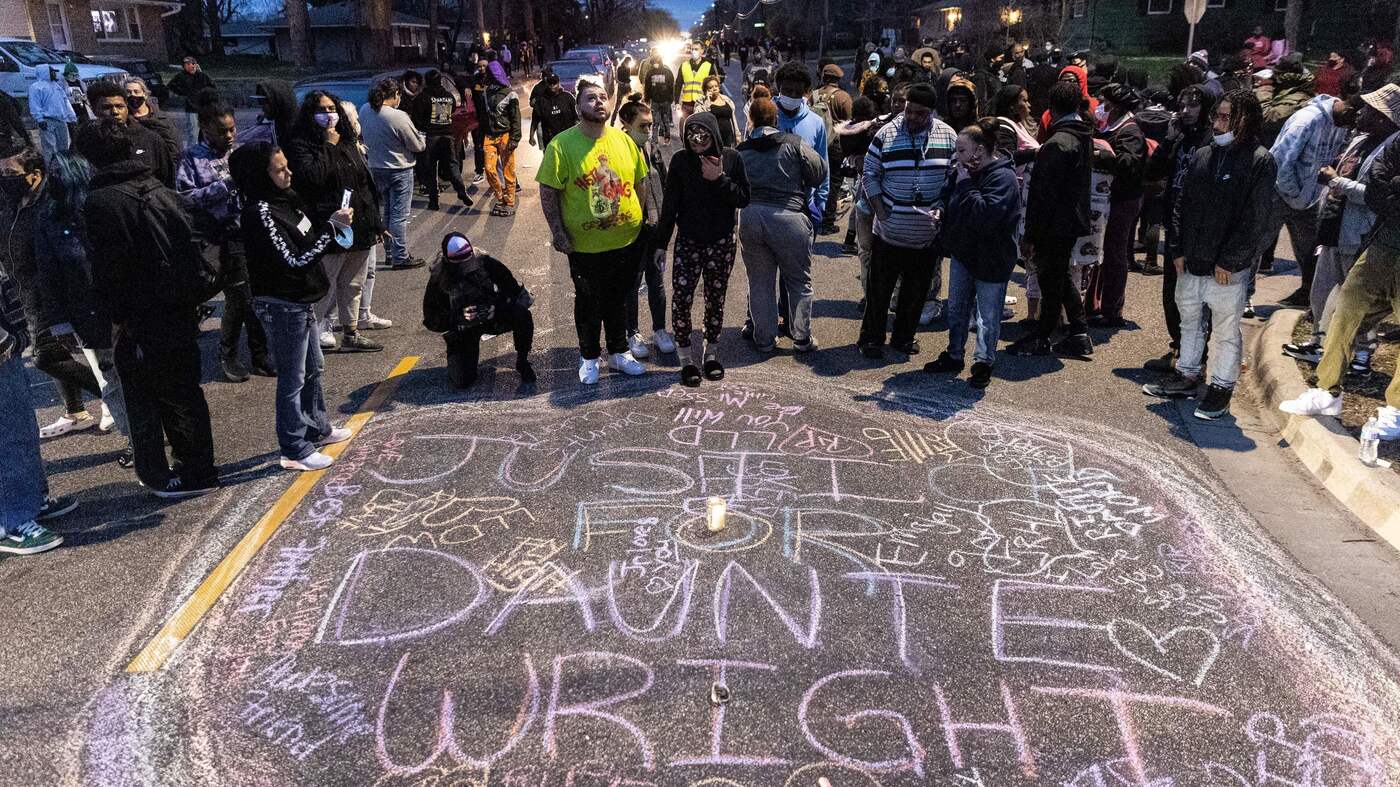

By Mathew Seibert and Matthew Torres
MINNEAPOLIS – The judge who sentenced former Brooklyn Center Police Officer Kim Potter to just two years in prison—far less than the seven years recommended—is in emotional shambles after deciding the sentence of Potter, who gunned down Duante Wright after a traffic stop.
Potter said it was a mistake, that she meant to use her Taser—crying out, “I’m going to jail” after shooting Wright, a young Black man.
Associated Press revealed these emotions Friday: “Hennepin County District Judge Regina Chu choked up as she described the difficulty deciding on a sentence for Potter, who said she meant to use her Taser but mistakenly fired her handgun into Wright’s chest as he tried to drive away from a traffic stop in April.”
But the family of the victim expressed their emotions as they angrily condemned the judge for disregarding the prosecution’s recommendations for sentencing, and seemingly the jury’s intentions.
The AP pointed out that “a Black officer convicted of shooting a white woman in 2017 in a different Minnesota case got no such mercy despite his expressions of remorse.”
Katie Wright, mother of the victim Duante Wright, accused Justice Chu of being coerced by a performance by Potter, and wondered why her own tears didn’t elicit such a sympathetic response from the judge.
During the trial in December, Potter cried during her testimony and emotionally lost it again Friday as she addressed the victim’s family.
Potter sobbed, “Katie, I understand a mother’s love and I am sorry I broke your heart, my heart is broken for all of you.”
“White Woman Tears” is a phrase that has gained popularity across the nation that describes white people weaponizing their emotions. White people use their emotions against people of color in order to protect their privileged positions in life, claim criminal reform advocates.
“It has gained currency amid the national reckoning on race,” the AP said.
Wright’s family wanted the maximum sentence possible for their son’s murderer. The state attorney general’s office had already established a seven-year sentence per state guidelines.
However, Chu said that Potter’s exemplary 26 years of service with the Brooklyn Center Police Department “cries out” for a shorter sentence.
Chu also has an extensive career, nearly 20 years as a judge, as she was appointed in 2002.
At Potter’s sentencing, Chu explained there are four reasons to send someone to prison: “retribution, incapacitation, deterrence, and rehabilitation.” In her opinion, she didn’t feel Potter needed to be deterred or rehabilitated, but simply pay for the harm she has caused (retribution).
Chu does not deny fault altogether, though. She says, “In this case, a young man was killed because Officer Potter was reckless. There rightfully should be some accountability.”
When compared to other killings by police officers, Judge Chu said this case is “distinguishable” from the murder conviction of Derek Chauvin or the manslaughter conviction of Mohamed Noor.
She continued her analogy by stating, “This is not a cop found guilty of murder for using his knee to pin down a person for nine and one-half minutes as he gasped for air. This is not a cop found guilty of manslaughter for intentionally drawing his firearm and shooting across his partner and killing an unarmed woman who approached his squad. This is a cop who made a tragic mistake. She drew her firearm thinking it was a Taser and ended up killing a young man.”
Chu said officers are pressured to make quick decisions in chaotic situations as a compelling mitigating circumstance.
In an attempt to get the public to empathize with Potter’s situation, Chu quoted former President Barack Obama, “As President Obama once said, learning to stand in somebody else’s shoes, to see through their eyes, that’s how peace begins.”
Chu added, “Officer Kimberly Potter was trying to do the right thing. Of all the jobs in public service, police officers have the most difficult one. They must make snap decisions under tense, evolving and ever-changing circumstances. They risk their lives every day in public service. Officer Potter made a mistake that ended tragically. She never intended to hurt anyone.”
John Baker, a criminal justice studies professor at St. Cloud State University, commented on the case stating, “Chu seemed more concerned about (officer) Potter than (victim) Wright and his family. On its face, it does not look good that a white woman got a break while Wright’s family and a Black officer—Noor—did not.”






Were the circumstances the same?
Never heard of it. Weaponizing their emotions?
Well, if criminal reform advocates say it it must be true, said no one ever.
I feel that Judge Chu made the right decision in lowering the sentence of Kim Potter in this case.
What is this, “Battle of the Tears” ??? The victim’s mother cries, the perpetrator cries, the judge cries. I’ve never read a trial report so focused on tears.
The phrase hasn’t gained popularity except in certain circles of ‘criminal reform advocates’ that wish to weaponize racist statements like that one.
That goes both ways, and if ‘criminal reform advocates’ only apply that in one direction as revenge for past (and current) oppression, then an eye for an eye will leave us all blind.
I don’t think anyone is arguing with the above statement, are they? I’m not arguing whether the sentence should have been two or seven years, and I certainly understand the mother of the victim’s disappointment. My issue is that with ‘criminal reform advocates’ it seems an argument like this would be for minimum sentence or release if they were a non-white, non-cop perpetrator, but since they are a white cop, burn them alive at the stake in the public square.
A lot of advocates believe that the officer got off lightly compared to comparable situations. I get that argument. But I don’t share it. For me the problem is the reverse and we need to fix harsh sentences not increase sentences on others. This officer clearly made a mistake, she recognizes it and laments it, what justice is served by her being locked in a cage? Instead, there is a great opportunity lost to do restorative justice. That’s a tragedy here, I know a lot of people in justice circles disagree with that, but I stand by it.